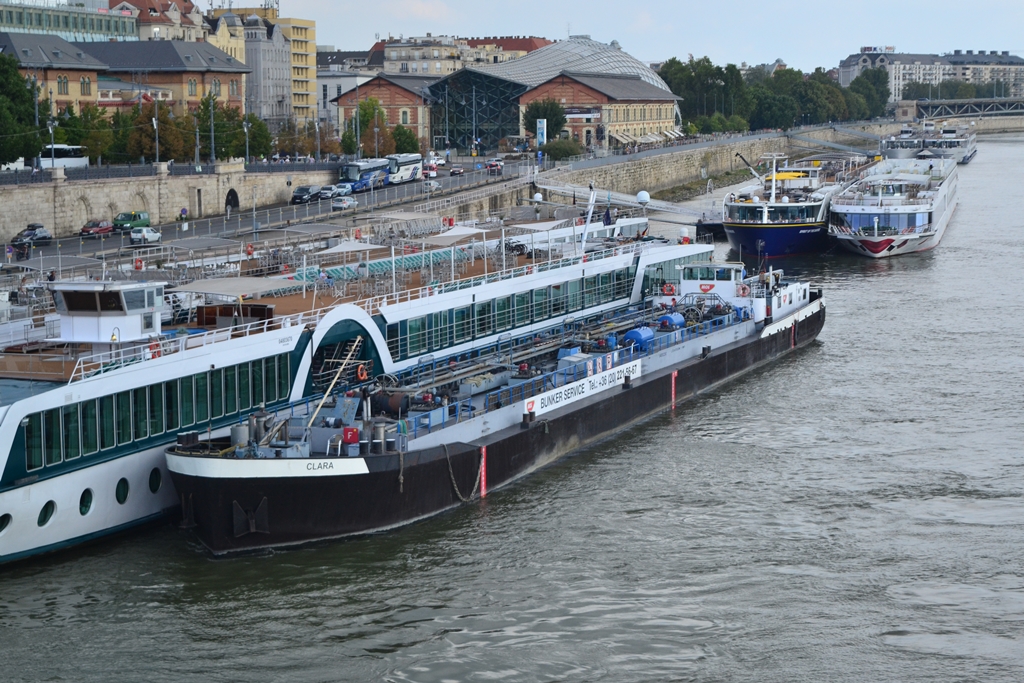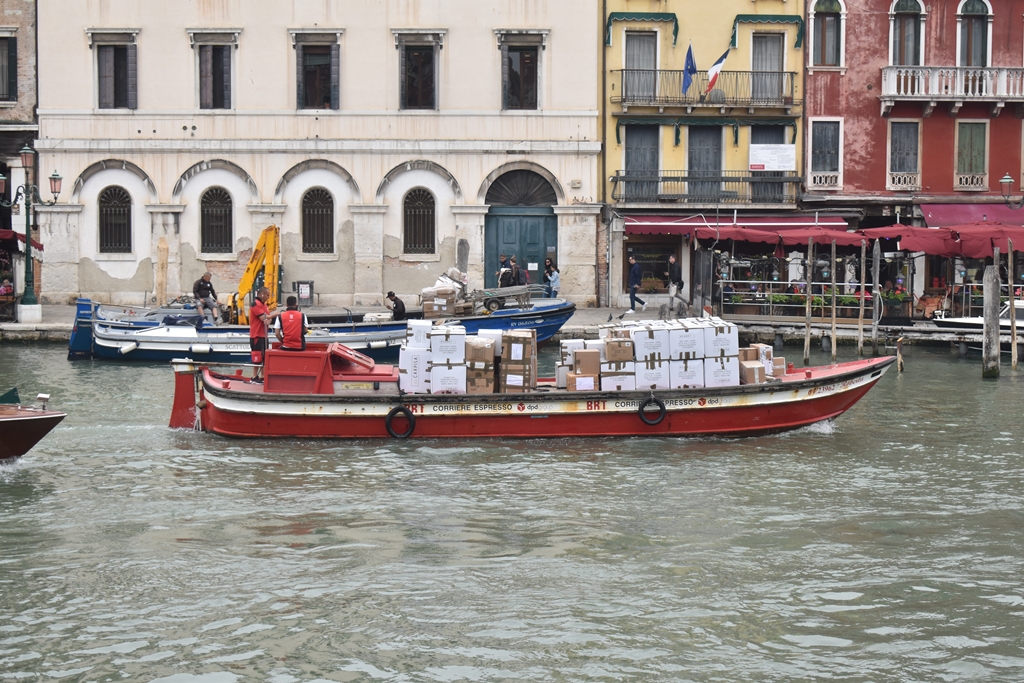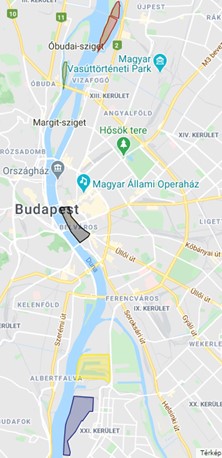The use of waterways for city logistics purposes in the central districts of Budapest in consolidation-based systems
Experts currently working on this project: Krisztián Bóna, Ph.D., Dávid Lajos Sárdi
Previous project members: István Bence Kövér, Mátyás Gergely Karakai
Students who have earlier worked on this project: Júlia Földesi, Anna Geráth, Zsolt Keller, Zita Váradi
Start of the project: February 2019
In this project, we examined the possibility of using waterways, or in Budapest’s case, the river Danube for city logistics purposes. During our research, we would like to elaborate on a solution in which Budapest’s protected city center (the “Váci utca” shopping area and its surroundings) can get supplied with goods via hybrid solutions. This concept would work mostly by using the river’s waterways, and only the last-mile transport would go on roads, utilizing the Danube’s hidden capacities. This solution would decrease traffic, emission, and noise pollution in the city center. In this project’s concept, one or more port(s) would be utilized on the Pest side, between Lánchíd and Szabadság híd, which port(s) would serve as the receiver of goods, from where different road vehicles (cargo bikes, environmentally friendly trucks) could deliver the required amount of goods to the stores.
In the project’s first phase, we mapped the shipping conditions on the Danube and Budapest, highlighting ports and quays and examining the water traffic. We were also concerned with the target area, the “Váci utca” shopping area, which we have measured in an earlier project. We also enquired about different foreign city logistics solutions and elaborated on some concepts for Budapest’s case.


Refueling vessel in Budapest and parcel delivery cargo boat in Venice
One of our main tasks is to define the problems and answer questions during research. In this project, our goal is to determine the requirements and to prepare a city logistics concept, with which we can specify the infrastructure and design the cargo boats.
In the further research stations, we evaluated the industrial venues capable of hosting a consolidation center, such as the Csepel Free Port, the riverside of Csepel Works, Hajógyári-sziget, and Népsziget. These areas were marked by using the COMBI method, and based on these, the venues located in Csepel and Népsziget’s shipyard proved to be the best for logistics purposes.
Besides, we defined the requirements of the “Váci utca” shopping area based on earlier research because this area could be served via the river. We processed the data gathered by earlier surveys, calculated the requirements by stores, and defined two possible solutions for the deliveries through the water.

The examined areas in Budapest (Google Maps)
Significant documents related to the project
Krisztián Bóna, PhD, Dávid Lajos Sárdi. A városi koncentrált igénypont-halmazok áruellátási rendszerének új koncepciói a különböző közlekedési alágazatok lehetőségeinek kihasználásával – New concepts for the supply system of the urban concentrated sets of delivery locations by using different transport modes (2019).
XIII. Innovation and Sustainable Surface Transport (IFFK) 2019, Budapest.
URL: https://mmaws.bme.hu/2019/pages/program/papers/Paper_07_Bona_K_Sardi_D_IFFK_2019.pdf
ISBN: 978-963-88875-4-2
Dávid Lajos Sárdi, Mátyás Gergely Karakai, István Bence Kövér, Krisztián Bóna, PhD. City logistics investigation of waterway delivery possibilities for supplying the inner-city areas of Budapest (2022).
Hungarian Logistics Association – Logistics Yearbook 2022, pp. 154-163.
DOI: 10.23717/LOGEVK.2022.14
URL: https://drive.google.com/file/d/1uOrTRNr685w5BIqDfyFMdFePKoR4XH1g/view
ISSN: 1218-3849